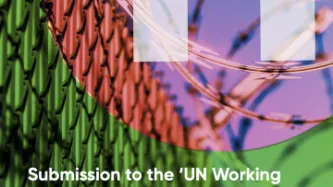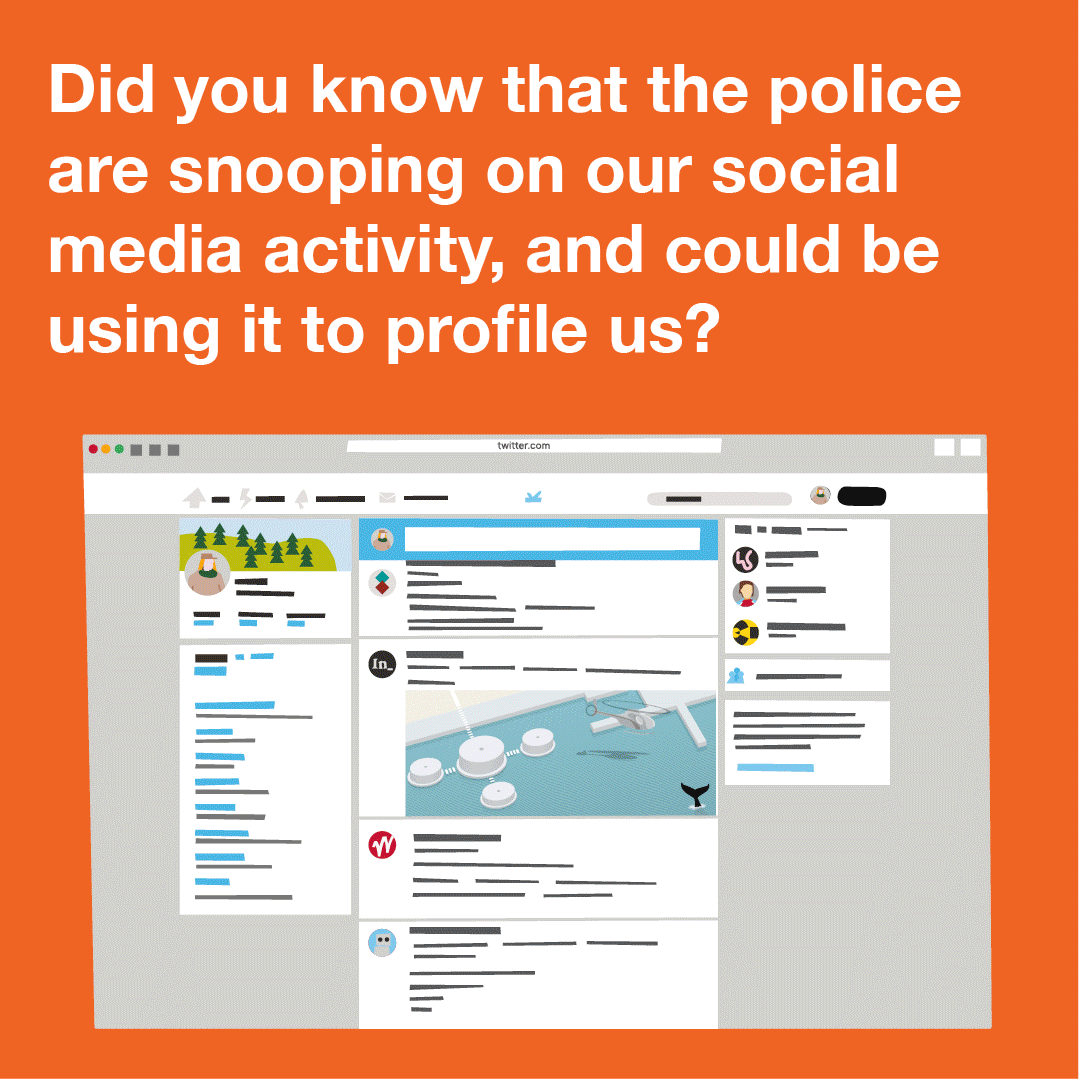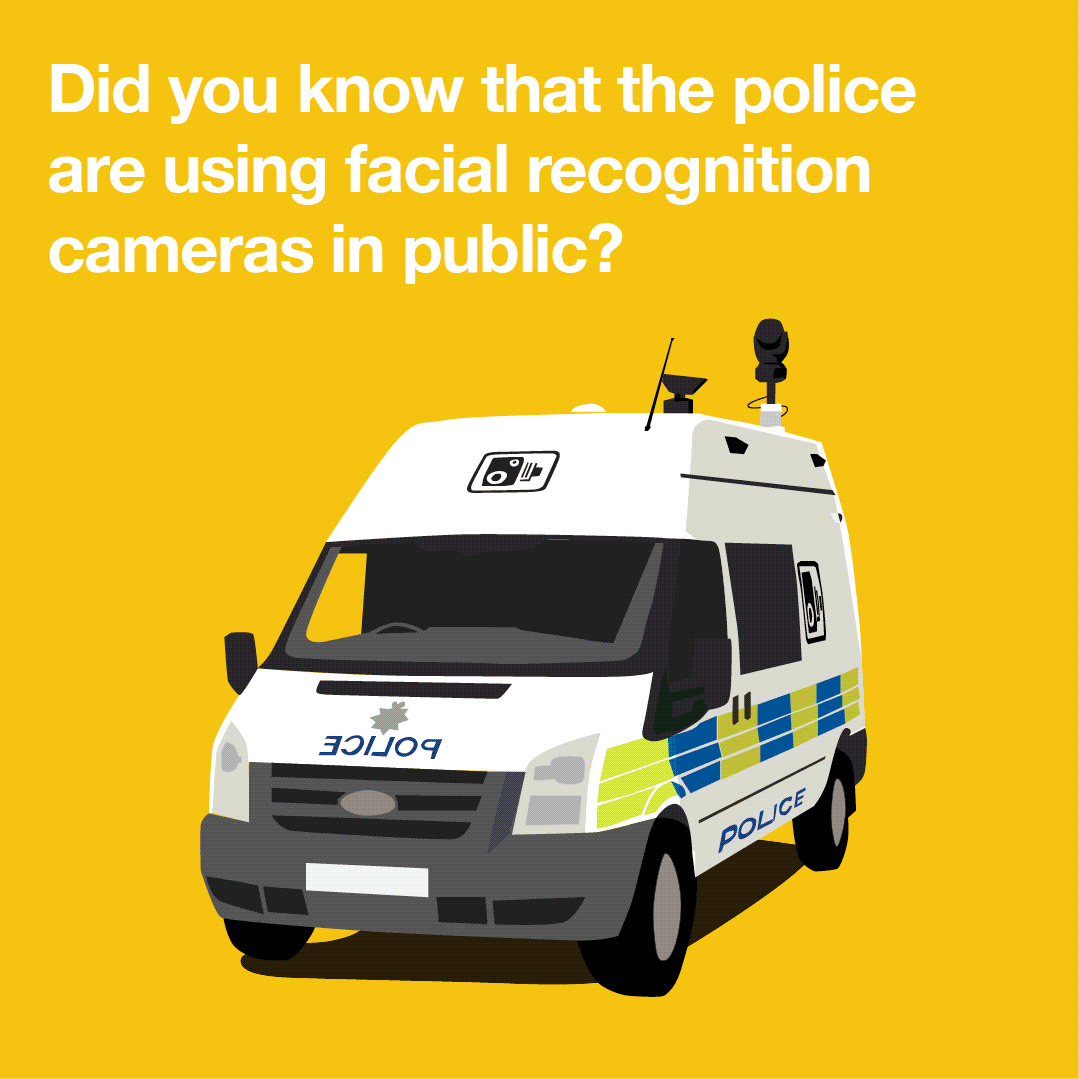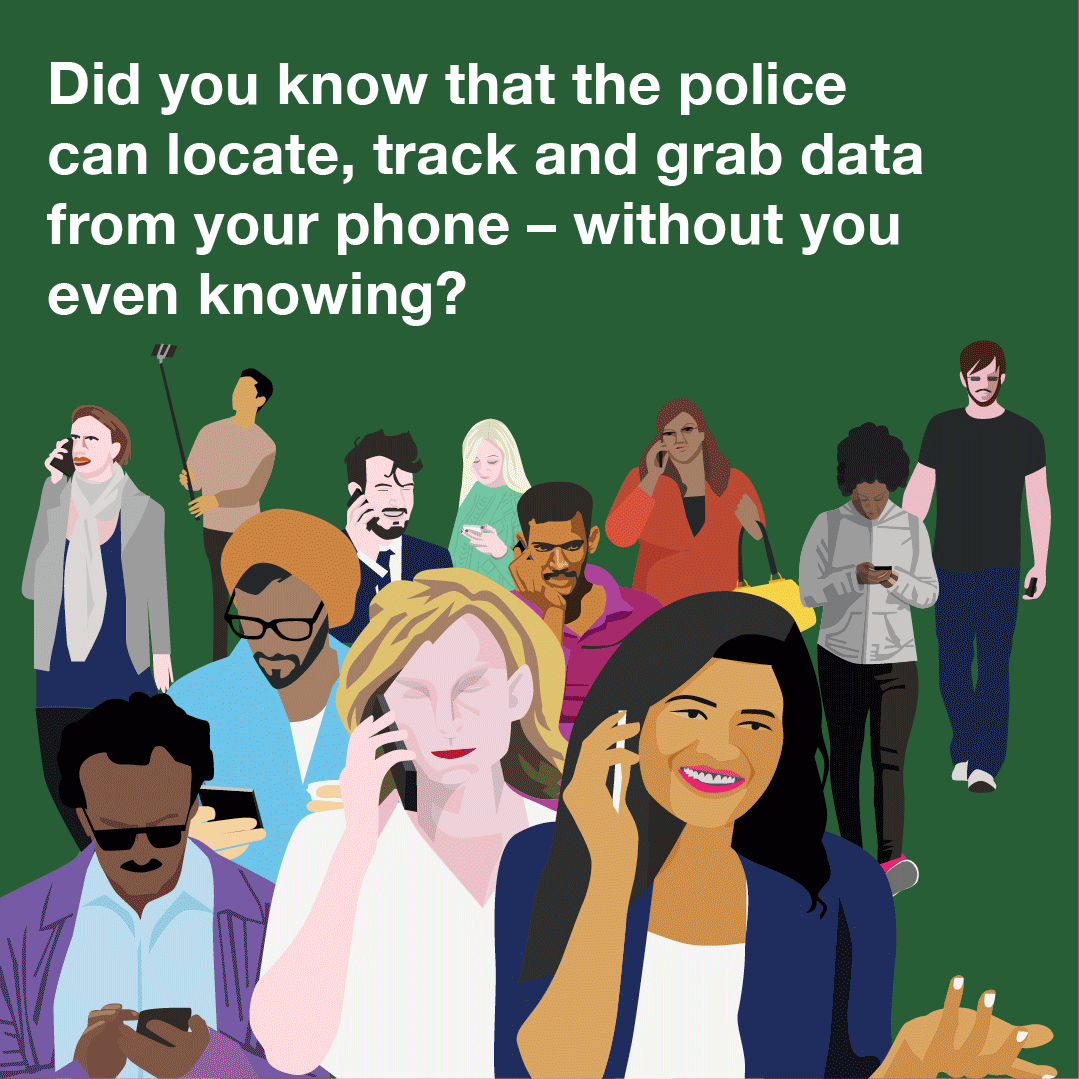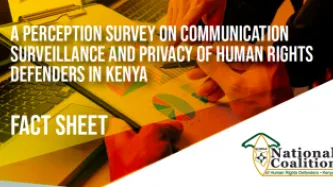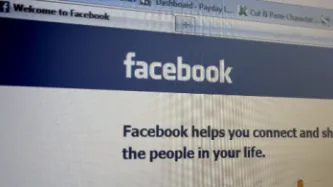Search
Content type: Examples
The International Press Institute has found that in both democratic and autocratic states the public health crisis has given governments the excuse of preventing the spread of disinformation to exercise control over the media, whether by criminalising journalism or controlling the public narrative and restricting access to information about the pandemic. The International Federal of Journalists has also found that three-quarters of journalists report that working conditions have deteriorated…
Content type: Advocacy
Privacy International responded to the call for submissions of the Working Group on the use of mercenaries as a means of violating human rights and impeding the exercise of the rights of peoples to self-determination on role of private military and security companies in immigration and border management and the impact on the protection of the rights of all migrants.
This submission builds on PI’s research and reporting highlighting examples of the involvement of private companies in…
Content type: Examples
On April 20 Hong Kong authorities arrested some of the most prominent anti-China activists. The need to clear the streets to protect public health during the COVID-19 outbreak provided the authorities an opportunity to cripple the protest movement that had spread across the country beginning in mid-2019. Chinese officials in Hong Kong have also called for improved national security education in the city and for the passage of a national security law giving law enforcement and prosecutors…
Content type: Examples
Tanzania's Communication Regulatory Authority punished three TV stations for airing content that was "misleading and untrue" about the government's strategy on fighting coronavirus. Critics believe that TCRA objected to a report that criticised President John Magufuli for saying that churches should remain open on the basis that "coronavirus cannot survive in a church".
Source: https://www.bbc.co.uk/news/world-africa-52214740
Writer: Dickens Olewe
Publication: BBC
Content type: News & Analysis
In mid-2019, MI5 admitted, during a case brought by Liberty, that personal data was being held in “ungoverned spaces”. Much about these ‘ungoverned spaces’, and how they would effectively be “governed” in the future, remained unclear. At the moment, they are understood to be a ‘technical environment’ where personal data of unknown numbers of individuals was being ‘handled’. The use of ‘technical environment’ suggests something more than simply a compilation of a few datasets or databases.
The…
Content type: News & Analysis
Today Advocate General (AG) Campos Sánchez-Bordona of the Court of Justice of the European Union (CJEU), issued his opinions (C-623/17, C-511/18 and C-512/18 and C-520/18) on how he believes the Court should rule on vital questions relating to the conditions under which security and intelligence agencies in the UK, France and Belgium could have access to communications data retained by telecommunications providers.
The AG addressed two major questions:
(1) When states seek to impose…
Content type: Report
Like many others, PI were alarmed at recent reports that Facebook have been making mobile phone numbers (which users believed to be) provided for the express purpose of "two-factor authentication" (2FA) both searchable, and a target for advertising by default.
One of the myriad ways Facebook displays targeted adverts to users is through so-called "Custom Audiences". These "custom audiences" are lists of contact details, including phone numbers and email addresses, uploaded by advertisers.…
Content type: Explainer
Could an app you have never even heard of put you at risk? This is what happened to Chloe (real name has been changed), an investigative journalist exposed by an app that her source was using.
Her source was using TrueCaller, an app that aims to identify phone numbers so users can filter out calls, even if it is from a number they have never encountered before. TrueCaller relies on users tagging numbers who are calling them. And when your number is tagged there is no way for you to know that…
Content type: Case Study
Photo by Roger H. Goun
Chloe is an investigative journalist working for an international broadcast service; we will call the TV show she works for The Inquirer. She travels around the world to work with local journalists on uncovering stories that make the headlines: from human trafficking to drug cartels and government corruption. While her documentaries are watched by many and inspire change in the countries she works in, you would not know who Chloe is if we were to tell you her real name.…
Content type: Long Read
(In order to click the hyperlinks in the explainer below, please download the pdf version at the bottom of the page).
Content type: Explainer graphic
You can also read a more detailed explainer about social media intelligence (SOCMINT) here.
Content type: Report
6 March 2019
Privacy International (PI) has written Facebook to express our concern and request urgent answers regarding its policy on the sharing of mobile phone numbers of its users.
Alarmingly, recent reports say that some of the phone numbers provided by users for the express purpose of two-factor authentication (2FA) as a way of securing their accounts are now made searchable across the platform by default.
PI is concerned that allowing such numbers to be searchable…
Content type: Explainer graphic
You can also read a more detailed explainer about facial recognition cameras here.
Content type: Explainer graphic
You can also read a more detailed explainer about IMSI catchers here.
Content type: Examples
In July 2018, Facebook announced it was investigating whether the Boston-based company Crimson Hexagon had violated the company's policies on surveillance. Crimson Hexagon markets itself as offering "consumer insights". Its customers include a Russian non-profit with ties to the Kremlin, and multiple US government agencies. After pressure from civil liberties groups, Facebook put a policy in place in March 2017 barring the use of members' data for the purposes of government surveillance.…
Content type: Report
In December 2018, the National Coalition of Human Rights Defenders-Kenya published a report analysing the needs and concerns of human rights defenders (HRD) in relation to privacy, data protection and communications surveillance.
A summary of their findings is below. Access the full report on their website.
Content type: Examples
In 2015, The Intercept obtained documents showing that the Mall of America in Bloomington, Minnesota used a fake Facebook account to friend and monitor local Black Lives Matter activists, and collect their personal information and photographs without their knowledge. The account was discovered in a cache of files the Mall of America provided to Bloomington officials after a large BLM protest against police brutality that was held at the mall. After the protest, the city charged 11 protesters…
Content type: Explainer
What is SOCMINT?
Social media intelligence (SOCMINT) refers to the techniques and technologies that allow companies or governments to monitor social media networking sites (SNSs), such as Facebook or Twitter.
SOCMINT includes monitoring of content, such as messages or images posted, and other data, which is generated when someone uses a social media networking site. This information involves person-to-person, person-to-group, group-to-group, and includes interactions that are private and…
Content type: News & Analysis
On a hot day in Nairobi, our researcher is speaking to an officer of Kenya’s National Intelligence Service (NIS). The afternoon is wearing on and the conversation has turned to the presidential elections, taking place in August this year. He has just finished describing the NIS’ highly secret surveillance powers and the disturbing ways in which these powers are deployed.
“It is what you might call ‘acceptable deaths,’” he states about the misuse of communications surveillance powers. “People…
Content type: Report
This investigation focuses on the techniques, tools and culture of Kenyan police and intelligence agencies’ communications surveillance practices. It focuses primarily on the use of surveillance for counterterrorism operations. It contrasts the fiction and reality of how communications content and data is intercepted and how communications data is fed into the cycle of arrests, torture and disappearances.
Communications surveillance is being carried out by Kenyan state actors, essentially…
Content type: News & Analysis
Facebook's new "Download your Information" feature reveals a radically different interpretation of transparency to one that the rest of us in Europe might hold. The feature may be a promising start, but the company still clearly has difficulty understanding the requirements of European Data Protection law. The feature provides only a fraction of the personal information held by Facebook and is thus still in violation of law.
The company may escape a prosecution under the UK Trades Description…
